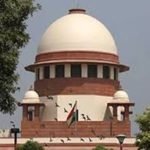The case originated from a writ petition filed by an appellant before the High Court, alleging that as many as 62 police encounters took place in the State of Assam between May and December 2010. These incidents purportedly involved deaths and grievous injuries. The appellant, a learned counsel, contended that no meaningful or effective inquiry had been undertaken into these cases and that the guidelines established by the High Court in PUCL v. State of Maharashtra had not been followed. The High Court dismissed the petition, holding that the guidelines were “premature” and the documents placed on record only contained vague assertions.
It was asserted by the appellant that 70 police encounters occurred between May 2000 and December 2017 in Assam, resulting in 29 deaths and 108 injuries. Conversely, Respondent No. 1 provided an affidavit indicating 173 incidents of police encounters in Assam between May 2010 and August 2014, leading to 29 deaths and 108 injuries, including 4 custodial deaths. The State of Assam, however, failed to indicate the present status of investigation in all 173 cases, only submitting charge sheets in 27 out of 84 cases that resulted in death.
Law Involved The core legal framework for this judgment is the High Court’s guidelines from PUCL v. State of Maharashtra (2014) concerning police encounters resulting in death. These guidelines prescribe procedures for independent investigations into such incidents.
Key legal principles and statutes referenced include:
Article 21 of the Constitution of India: The fundamental right to life and personal liberty, which police encounters often impinge upon.
Code of Criminal Procedure (Cr.P.C.): Section 176 mandates a magisterial inquiry in cases of death caused by police firing.
Human Rights Commissions Act (1993): Outlines the functions and powers of Human Rights Commissions (HRCs) in addressing human rights violations, including the authority to summon witnesses, require public records, and initiate investigations.
Constitutional morality: The concept that the government is obligated to uphold constitutional guarantees, especially regarding human dignity and fundamental rights.
Reasoning: The court’s reasoning was heavily influenced by the lack of independent and impartial investigations into the alleged encounters.
The court found that investigations conducted by officers from the same police station where the incident occurred created a glaring conflict of interest, rendering them “superficial exercises”. This compromised the integrity of the process and offered a “convenient opportunity” for involved officers to shield themselves from scrutiny.
The argument that individuals were killed or injured because they were “trying to flee” was viewed with scepticism, raising apprehensions that these encounters were premeditated and not genuinely in self-defence.
The High Court’s initial dismissal was found to be “erroneous” for overlooking the critical fact that “62 persons have lost their lives and 103 have been grievously injured” in police encounters and that the guidelines from PUCL v. State of Maharashtra were not adhered to.
The court reiterated that every instance of death or grievous injury in police encounters must be investigated promptly and independently. Such investigations should ensure transparency, accountability, and uphold the sanctity of procedures.
The failure of the State of Assam to provide comprehensive status reports on investigations for all 173 cases leading to death or injury further reinforced the lack of transparency and proper investigation.
The court stressed that police encounters resulting in death cannot be countenanced as lawful unless they fall within the strict parameters of self-defence or legal provisions. The right to life is paramount, and any violation by state actors, even under the guise of official duty, must be subject to stringent judicial scrutiny.
The court acknowledged that while HRCs have wide-ranging powers to investigate, their effectiveness depends on the independent conduct of their inquiries, distinct from the State Police.
Holding The Supreme Court allowed the appeal, reversing the High Court’s decision. It issued several directives to ensure justice and compliance with established guidelines:
The High Court was directed to issue a public notice, published in at least one national English daily and one prominent vernacular newspaper, inviting victims or their families to present their cases related to alleged police encounters.
For cases where allegations of human rights violations are received, the High Court shall direct the State Human Rights Commission to issue notices and conduct inquiries. If such a commission does not exist or lacks capacity, the National Human Rights Commission must be approached.
The Supreme Court mandated that all allegations of police encounters resulting in death or grievous injury be subjected to an independent investigation. This investigation is to be conducted by the Central Bureau of Investigation (CBI) or, alternatively, by a Special Investigation Team (SIT) formed under the supervision of the High Court.
All police officials involved in these incidents must surrender their weapons for forensic ballistic analysis.
The State of Assam is required to provide full logistical, financial, and administrative support to the investigating agency and ensure victims receive legal assistance when approaching the HRCs or the High Court.
The investigations must be conducted and completed within a reasonable timeframe, strictly adhering to the PUCL guidelines, ensuring impartiality, transparency, and accountability.
The State was directed to make legal assistance available to individuals who seek support in approaching the Human Rights Commissions or presenting their cases before the High Court.
Arif Md. Yeasin Jwadder V. State Of Assam And Others
Supreme Court: 2025 INSC 785: (DoJ 28-05-2025)






